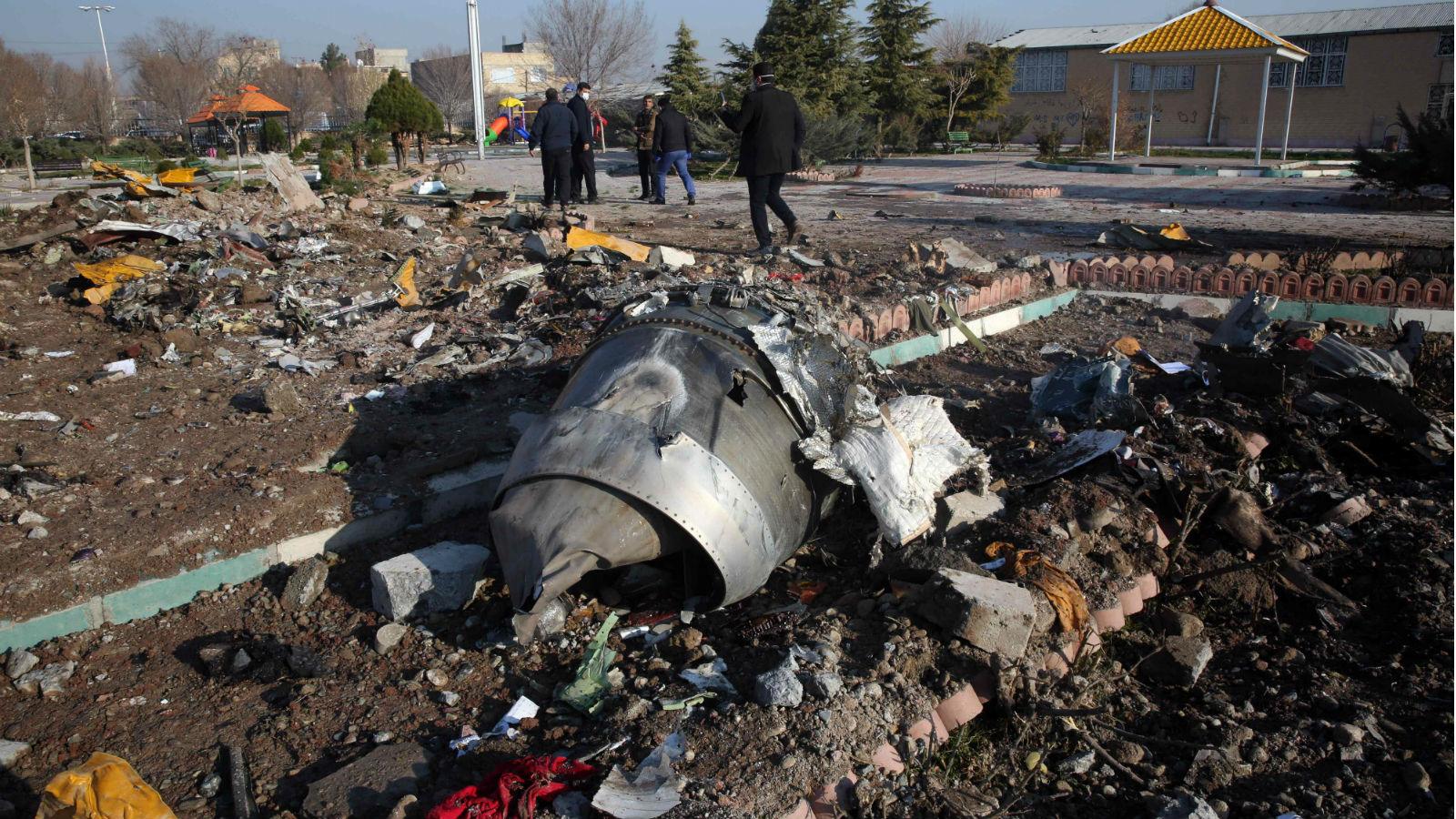Iran sends black box of Ukrainian plane to France
- Published
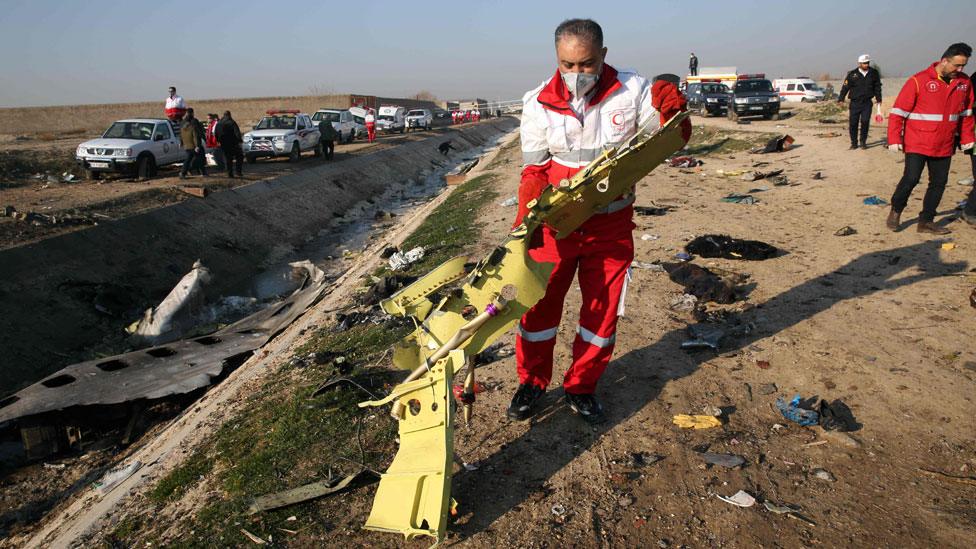
All 176 people on board were killed
Iran has sent the black box of a Ukrainian passenger plane which was accidentally downed in Tehran earlier this year to France.
All 176 people on board were killed when the plane was hit by two missiles shortly after take-off on 8 January.
Iran's deputy foreign minister said the black boxes were taken to Paris on Friday and would be read on Monday.
Iran initially denied responsibility for the incident, which came amid heightened tensions with the US.
But the country admitted fault days later, after Western intelligence officials said evidence pointed to Iranian involvement.
Tehran said the Ukraine International Airlines flight had been mistaken for a cruise missile, in what President Hassan Rouhani described as an "unforgivable mistake".
Iran's air defences had been on high alert at the time. Hours before the crash, the country had fired ballistic missiles at two US bases in Iraq in retaliation for the killing of top Iranian general Qasem Soleimani by a US drone strike in Baghdad.
Why is the black box important?
Iran had previously delayed releasing the black box - which contains key data and communications from the cockpit - amid disagreements with countries whose citizens died over where it should be decoded.
Mobile phone footage appears to show the plane in the moments before it came down
Under global aviation rules, Iran has the right to lead the investigation, but manufacturers are typically involved and experts say few countries are capable of analysing black boxes.
Iran had refused to release the black box to the US, where the plane's manufacturer Boeing is based.
The recordings will now be analysed by French experts. Canada, which lost 55 citizens in the crash, and Ukraine have said they will send their own experts to take part in the investigation.
What does Iran say happened?
Iran has conducted its own investigation into the crash, with a report released last week by the Civil Aviation Organisation of Iran (CAOI) blaming "human error" and poor military communication for the downing of the plane.
However, Ukraine's Foreign Minister said it was "too early" for such statements and said any conclusions should wait for the international investigation.
Last month, Iranian authorities said six people had been arrested over the incident.


There has been much speculation about why Iran did not clear the skies during the attack. A recent audio recording obtained by Canada's CBC News suggests that the airspace remained open to avoid giving away Iran's intention to attack the US air base in Iraq.
The recording is allegedly a conversation between the family of one of the accident victims and Hassan Rezaeifar, who at the time was leading Iran's investigation into the incident.
Iran's Deputy Foreign Minister Mohsen Baharvand dismissed the recording, saying it could not be used as evidence.
- Published12 July 2020
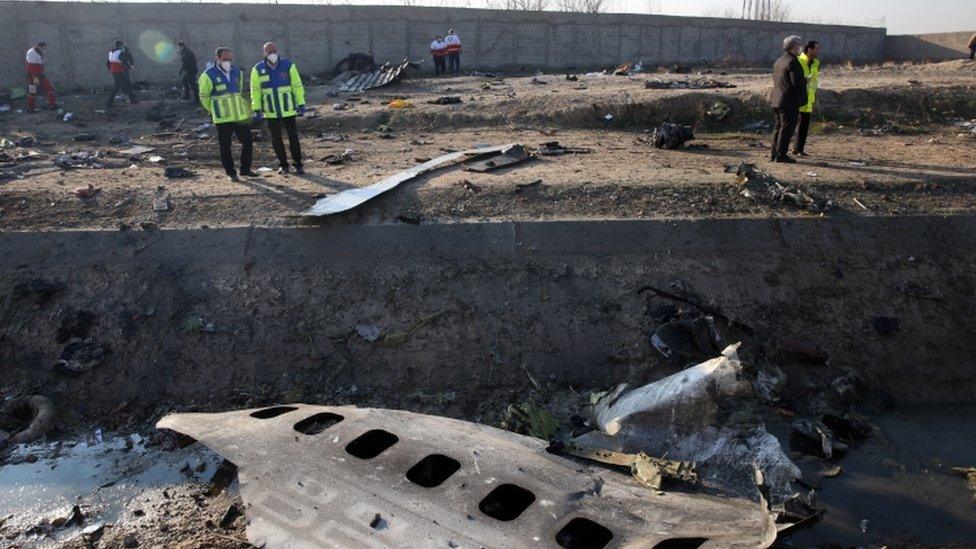
- Published11 January 2020
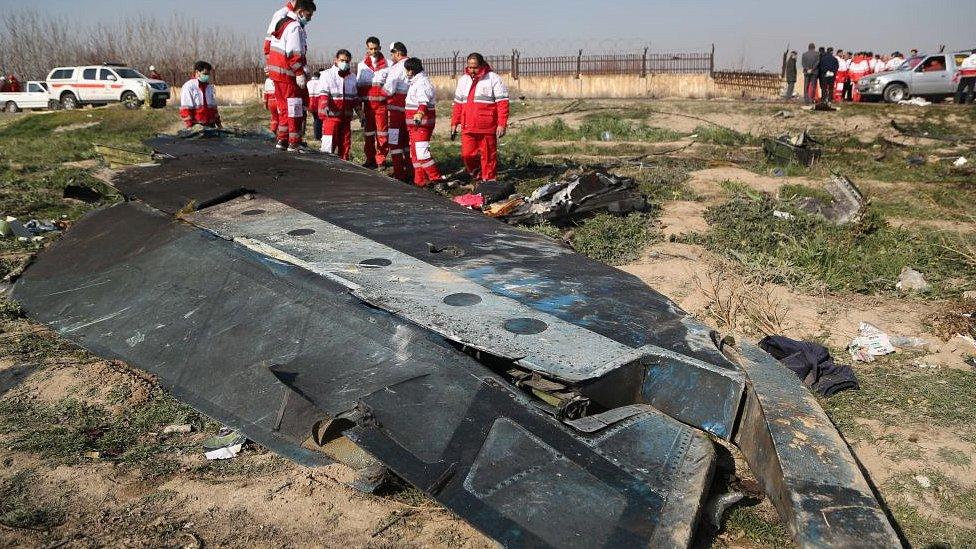
- Published21 January 2020
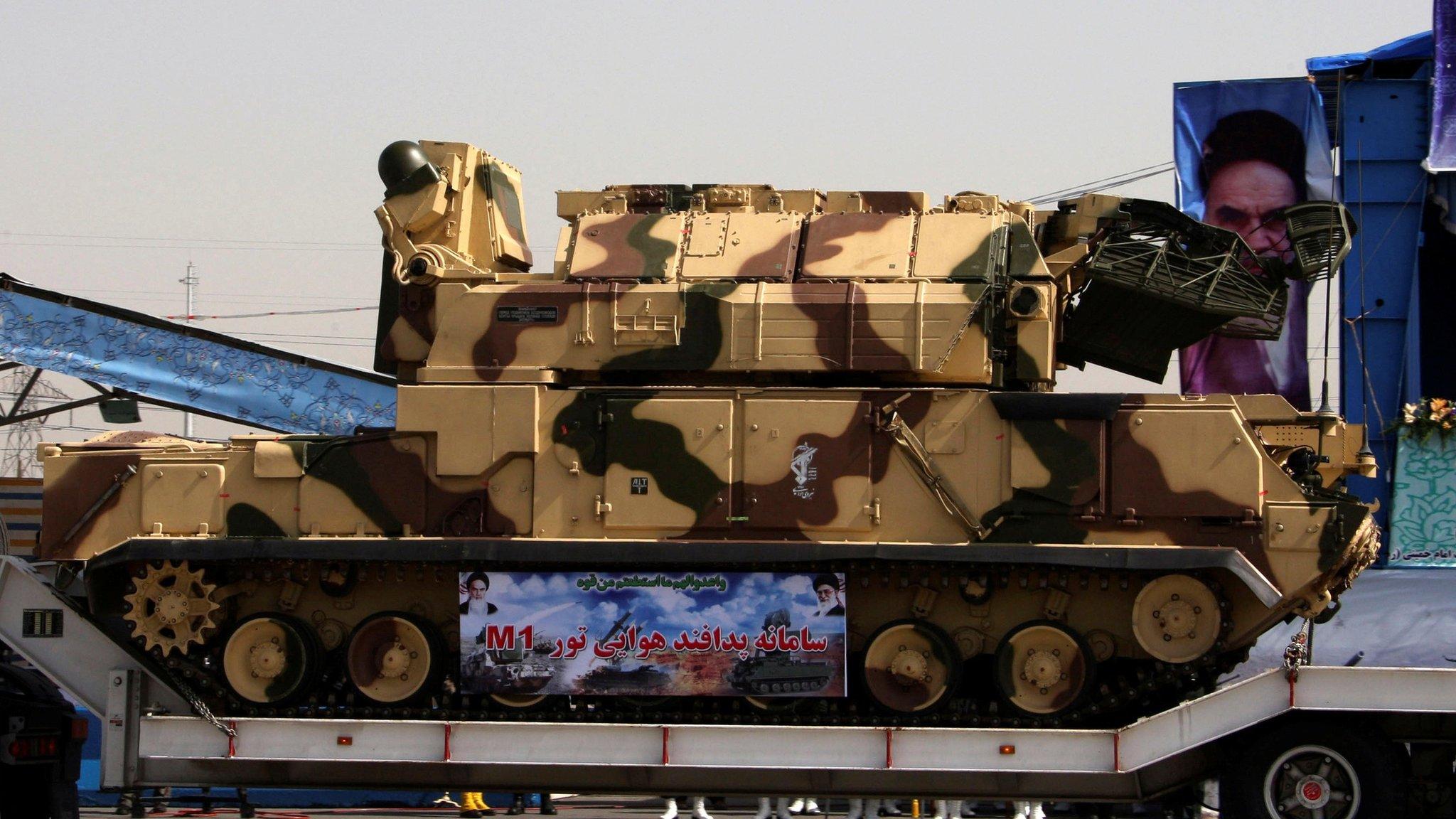
- Published9 January 2020
